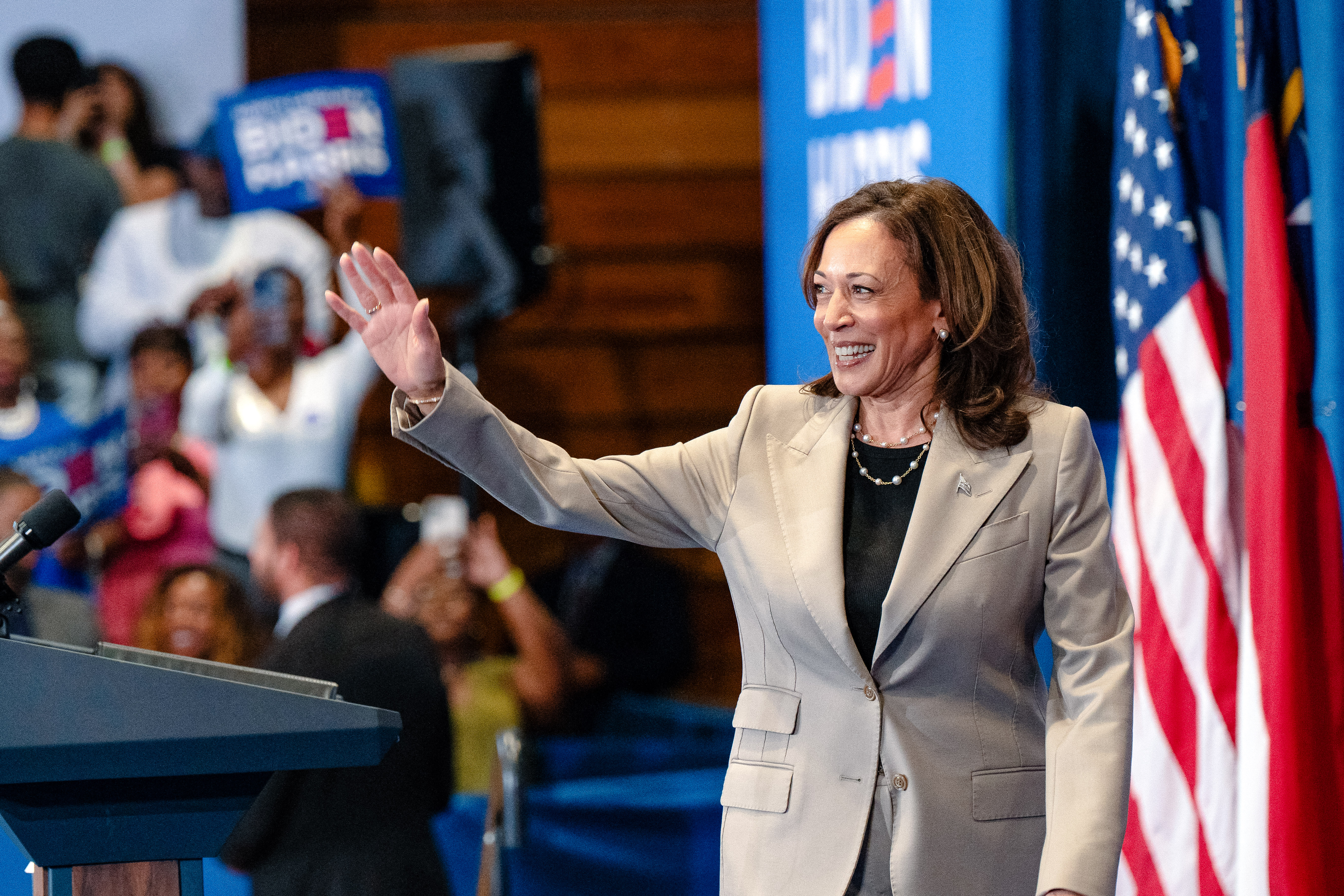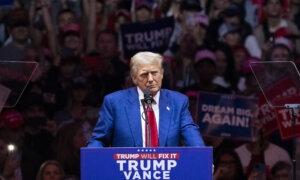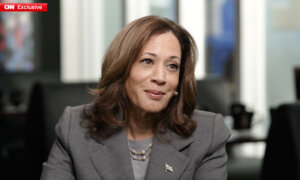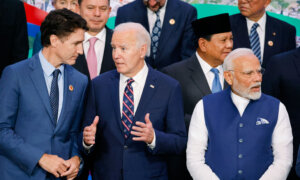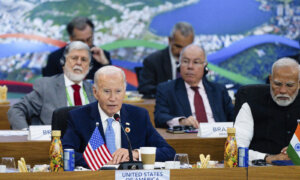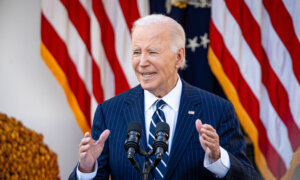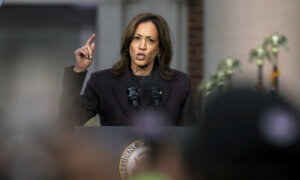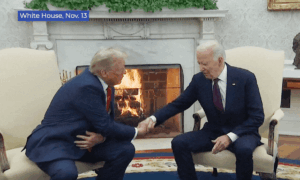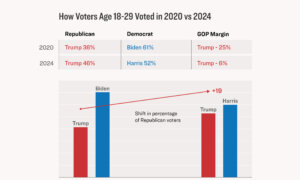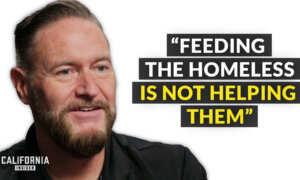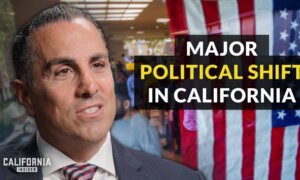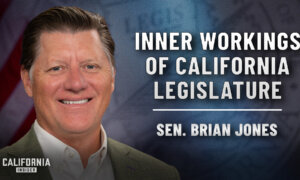Vice President Kamala Harris secured a commanding list of endorsements for her presidential nomination bid in the hours that followed the announcement from President Joe Biden that he is stepping out of the 2024 race.
The list of endorsements included the chairs of all 50 state parties, convention delegates from at least four states, and some of the biggest names in the party, including the Clintons, the governors of California, Pennsylvania, and New Jersey, and Democrat mega-donor Alex Soros.
The growing coalition behind Ms. Harris, which started with the endorsement from the president, has all but assured her as the party’s nominee to face GOP nominee former President Donald Trump in November.
She may, nevertheless, face a challenger before the Democrat delegates cast their vote to finalize the nominee next month.
Ms. Harris has yet to name a running mate. On Sunday, she spoke to Pennsylvania Gov. Josh Shapiro and North Carolina Gov. Roy Cooper.
President Biden endorsed Ms. Harris shortly after announcing his decision to pass the torch.
“My very first decision as the party nominee in 2020 was to pick Kamala Harris as my Vice President. And it’s been the best decision I’ve made,” the president said on X.
“Today I want to offer my full support and endorsement for Kamala to be the nominee of our party this year.”
Ms. Harris said she is ready to work to “earn and win the nomination.”
“I will do everything in my power to unite the Democratic Party—and unite our nation—to defeat Donald Trump,” Ms. Harris said. “We have 107 days until Election Day. Together, we will fight. And together, we will win.”
Some Democrat donors, lawmakers, and celebrities had called on President Biden to drop out as the party nominee, scrutinizing his performance in the first presidential debate with former President Donald Trump on June 27.
The president had repeatedly said he had a “bad night,” was not sufficiently prepared, and initially committed to staying in the race. More than three dozen House Democrats and five senators publicly asked him to step aside.

President Joe Biden speaks at the 115th NAACP National Convention at the Mandalay Bay Convention Center in Las Vegas on July 16, 2024. (Mario Tama/Getty Images)
The president made the announcement to step aside while in self-isolation in Rehoboth Beach, Delaware, due his third bout of COVID-19.
What’s Next?
The Democratic National Convention is scheduled for Aug. 19–22 in Chicago. Originally, the event would have been a coronation for President Biden as the Democratic nominee. The nearly 4,700 delegates planned to vote for the nominee virtually before the convention started.President Biden has at least 3,896 delegates pledged to support him after winning every state primary and caucus in 2024, besides the territory of American Samoa. Democratic National Committee (DNC) rules prevent the president from passing them to another candidate but his endorsement of Ms. Harris could prove influential to whomever they opt to support.
Despite Ms. Harris’s plans to run for president, other candidates could make pitches during or ahead of the convention.

Vice President Kamala Harris orders ice cream with her nieces from Tyra Banks at the opening of Banks' new pop-up ice cream shop, Smize & Dream, on July 19, 2024. (Erin Schaff - Pool/Getty Images)
If no candidate receives enough votes for the nomination in the first round, party leaders and other Democratic elites, known as “superdelegates,” can vote in subsequent rounds. The party has more than 700 superdelegates.
The vice presidential nomination will be decided in a separate convention vote. Normally, the convention approves the presidential nominee’s choice of vice president. If Ms. Harris receives the support of all pledged delegates quickly, she could name a vice presidential nominee, and the delegates could ratify it.
However, if the choice of presidential nominee becomes a prolonged battle, the vice presidency could be part of candidate negotiations.
Funding and Legal Issues
President Biden’s campaign recently reported a war chest of more than $91 million cash on hand. With contributions from other allied Democrat campaign committees, the total climbs to more than $240 million.ActBlue, a political action committee and fundraising platform, announced that Ms. Harris’ new presidential campaign has raised more than $27.5 million since President Biden’s announcement.
“Small-dollar donors raised over $27.5 million on ActBlue in the first 5 hours of Vice President Kamala Harris’ presidential campaign,” ActBlue said on X.

Correspondents use the White House Briefing Room to file reports of U.S. President Joe Biden's decision not to seek re-election on July 21, 2024. (Chip Somodevilla/Getty Images)
“Grassroots supporters are energized and excited to support her as the Democratic nominee.”
However, campaign finance experts have suggested that there could be restrictions on how that money is spent with a new nominee. Since Ms. Harris’s name was on the campaign next to President Biden’s, she could control all of those funds for her own campaign. If the party coalesces around a new candidate, there could be restrictions on how that money is spent.
Legal experts say the money could be used for an independent expenditure political action committee but the balance cannot simply be transferred to a different nominee.
Further obstacles that Democrats face in replacing the party nominee are federal and state legal challenges. Each state decides how parties must choose their nominees for president, and states such as Ohio and Alabama already had to find legislative solutions to make sure President Biden would appear on state ballots this year due to certification deadlines.
House Speaker Mike Johnson (R-La.) said in an interview with CNN on Sunday that Democrats will “have real problems” if they replace President Biden as party nominee this year.
“I mean, every state has their own election system. That’s our constitutional system,” he said.
“That’s the way it’s done. And in some of these states, it’s a real hurdle.”
Political strategist Christopher Bruce told The Epoch Times that “Democrats need to take a page out of Republicans’ book and become united.”
“The next couple of weeks are going to be very unpredictable. This hasn’t happened since, I believe, 1968,” he said.

President Joe Biden and Vice President Kamala Harris take the stage at a campaign rally at Girard College in Philadelphia, Pa., on May 29, 2024. (Andrew Harnik/Getty Images)
“It is no longer the general public or even general Democrats who are going to elect their nominees. Now, it goes towards the delegates,” Mr. Bruce said.
“The delegates get to decide. We’re not going to have this state-by-state primary process anymore, which is not exactly the most democratic way of doing things. But with the election coming up so soon, the DNC needs a way to actually pick a nominee.”
Mr. Bruce said if Ms. Harris is passed over, “there’s going to be a lot of upset people in the black community.”
“Biden–Harris is a different legal entity, but the majority of the funding goes to the DNC,” Mr. Bruce, who is also an attorney, said. “There are definitely ways to get around it. I would say that it would not be easy though.”
Mr. Bruce said it is crucial for Ms. Harris to select her running mate as soon as possible so that delegates can be informed about her choice for vice president.
DNC Chairman Jaime Harrison said on Sunday that “the work that we must do now, while unprecedented, is clear.”
“In the coming days, the party will undertake a transparent and orderly process to move forward,” Mr. Harrison said in a statement, with “a candidate who can defeat Donald Trump in November.”
He also noted that “in short order, the American people will hear from the Democratic Party on next steps and the path forward for the nomination process.”
